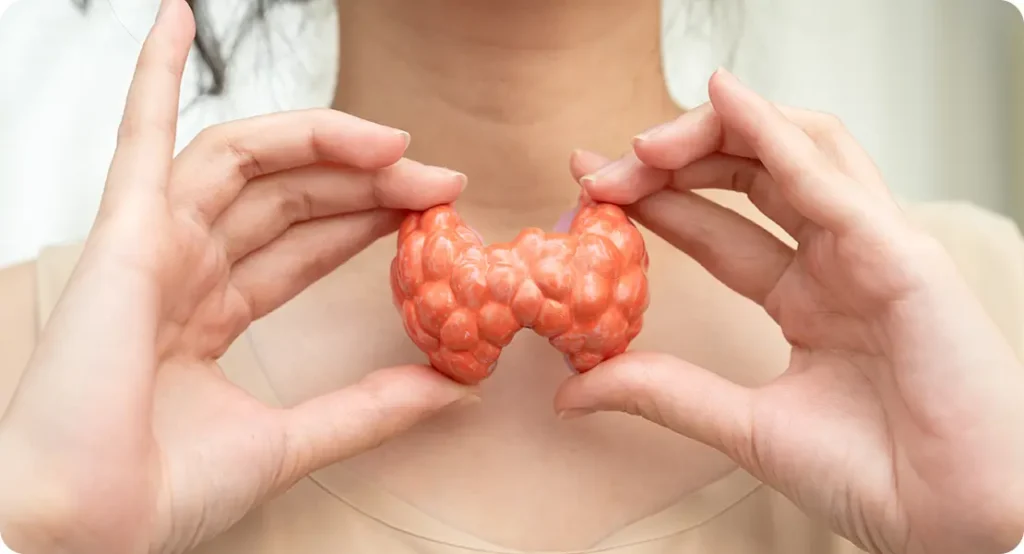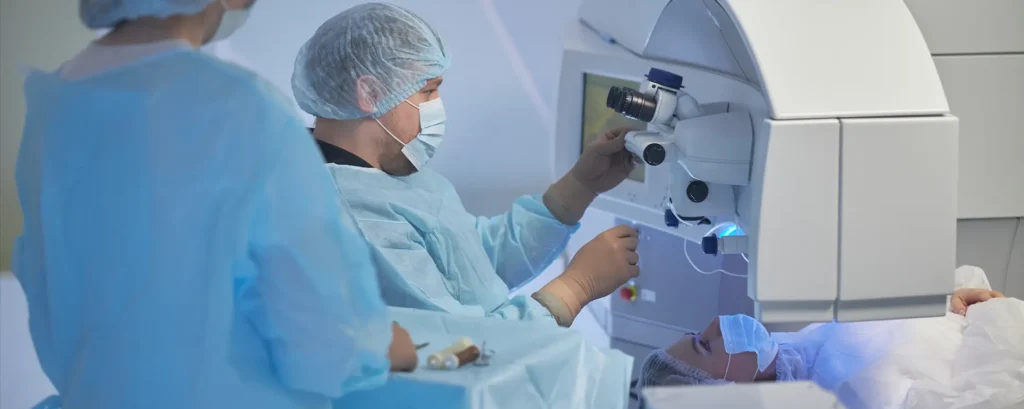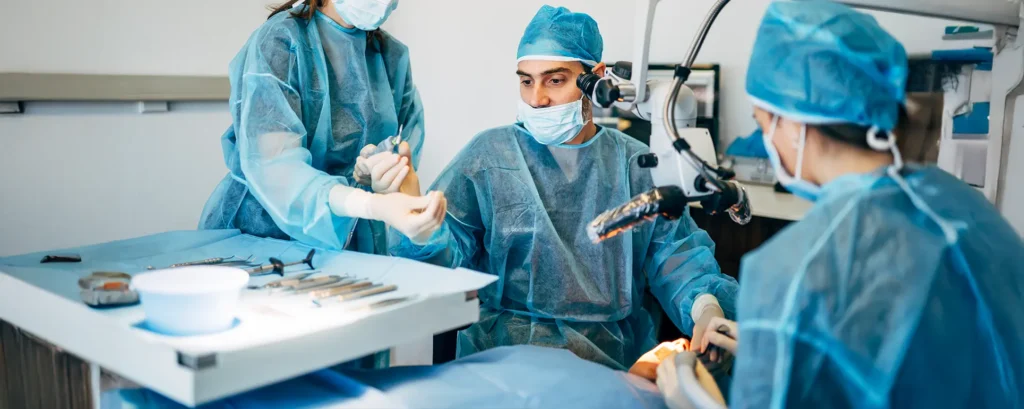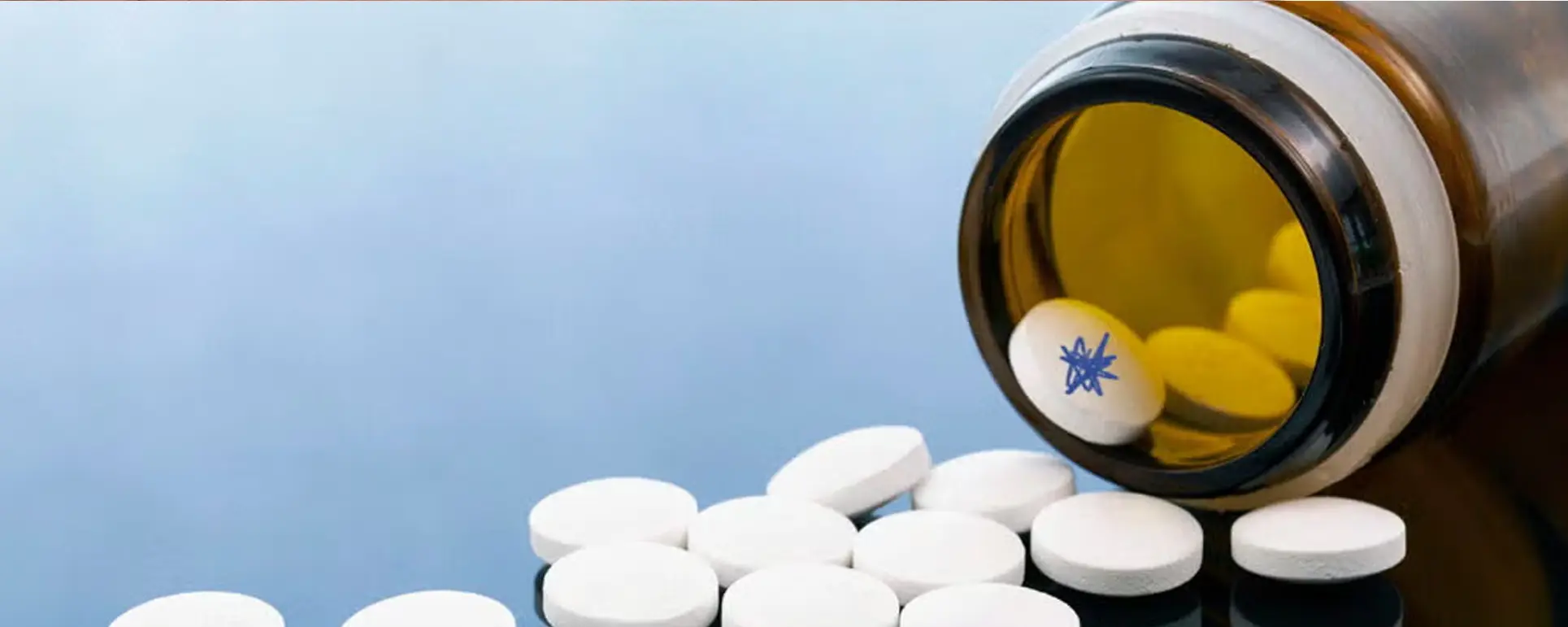If you’re one of the millions of people in the UK taking levothyroxine for an underactive thyroid, you might have questions about how your medication fits into your cataract surgery journey. Thyroid conditions affect many parts of the body, from metabolism to heart rhythm, and that means they can play a role in how your eyes heal, how you respond to anaesthesia, and how your recovery unfolds.
The good news is that for most people, taking levothyroxine is entirely compatible with safe and successful cataract surgery. However, there are a few details worth understanding — especially if your thyroid condition is not yet well controlled, or if you have other health conditions alongside it. In this article, we’ll walk through what levothyroxine does in the body, how it could influence your surgical experience, and what you and your eye care team should consider before, during, and after the procedure.
Understanding Levothyroxine
Levothyroxine is a synthetic form of thyroxine (T4), the main hormone produced by the thyroid gland. It’s prescribed to treat hypothyroidism, a condition where the thyroid gland doesn’t make enough hormones. These hormones are essential for regulating metabolism — the set of processes that control how your body uses energy.
When your thyroid hormone levels are low, you might feel fatigued, cold, or mentally foggy, and you may notice changes in skin texture, weight, and hair health. Levothyroxine helps restore hormone balance, improving energy levels and normalising bodily functions. Because these hormones affect every cell in the body, stable thyroid function is important for surgical recovery. A poorly controlled thyroid condition could make your body respond less predictably to surgery and anaesthesia.
Why Thyroid Health Matters in Cataract Surgery

Cataract surgery is generally safe and performed under local anaesthetic, but your overall health still plays a role in determining the smoothness of the process. Thyroid hormones influence cardiovascular function, blood pressure, and metabolism — all of which matter when you undergo any medical procedure.
An underactive thyroid that’s not well managed could make you more sensitive to sedatives, slower to recover from anaesthetic, and slower to heal after surgery. Conversely, taking the correct dose of levothyroxine keeps your metabolism and healing capacity at normal levels. That means ensuring your thyroid medication is optimised before cataract surgery isn’t just a good idea — it’s essential for the best outcome.
Anaesthetic Considerations for Patients on Levothyroxine
For cataract surgery, most people have local anaesthetic eye drops, sometimes combined with mild sedation. In rare cases, general anaesthesia may be used — for example, in patients who cannot remain still during the procedure.
Thyroid hormones influence how your body processes medications, including anaesthetic drugs. If you’re hypothyroid and under-medicated, your body may take longer to clear sedatives, leading to prolonged drowsiness. Over-medication, on the other hand, can raise heart rate and increase sensitivity to stimulants, which may affect blood pressure during surgery.
This is why anaesthetists always ask about your thyroid history and current medications before surgery. They’ll also want to know your most recent thyroid blood test results, especially if your medication dose has changed in the past few months.
How Levothyroxine Influences Healing
Healing after cataract surgery is generally quick — most people notice clearer vision within a day or two. However, thyroid hormones play a role in regulating cell growth, collagen production, and tissue repair. If you’re under-treated for hypothyroidism, these processes can slow down, making your recovery longer than average.
Conversely, if your thyroid function is stable on levothyroxine, your healing should be just as efficient as someone without a thyroid condition. That’s why your surgeon will likely advise you to keep taking your medication as normal before and after surgery, unless instructed otherwise by your GP or endocrinologist.
Medication Timing and Pre-Operative Instructions
Levothyroxine is typically taken once a day, in the morning, on an empty stomach. For cataract surgery, you will often be advised to continue your usual dosing schedule — including on the day of the procedure — unless you’re specifically told to pause for a medical reason. Skipping your dose could lead to fluctuating hormone levels, which isn’t ideal when your body needs stability.
Your surgical team may ask for your thyroid function test results from the past six to twelve months. If your levels aren’t within the target range, your GP may adjust your dose before giving the go-ahead for surgery.
Risks of Uncontrolled Thyroid Disease During Eye Surgery

While most people taking levothyroxine have well-managed thyroid levels, some may still have fluctuations. If hypothyroidism is severe and untreated, it can cause low heart rate, low blood pressure, and an increased risk of complications from sedation.
Overactive thyroid states — sometimes caused by taking too much levothyroxine — can raise heart rate, increase anxiety, and cause tremors, which could interfere with the precision needed during cataract surgery. Both scenarios emphasise the importance of a stable dose and regular monitoring before surgery.
Communication Between Your Eye Surgeon and GP
If you’re on levothyroxine, your GP or endocrinologist should be part of your surgical planning. Sharing your latest blood results with your eye surgeon helps them decide on anaesthetic choices and assess any healing concerns. Good communication between your healthcare providers ensures everyone knows your baseline thyroid status and can act quickly if anything needs adjusting.
Your GP may also give you a “fit for surgery” note confirming that your thyroid function is stable, which can speed up your pre-operative clearance.
Aftercare and Follow-Up
After cataract surgery, you’ll usually use prescription eye drops for a few weeks to reduce inflammation and prevent infection. Taking levothyroxine alongside these drops is safe, as there are no direct interactions. However, if your thyroid condition is unstable, your healing might require closer follow-up.
Report any unusual fatigue, prolonged swelling, or slower-than-expected vision improvement to your surgeon. While these may not be directly caused by your thyroid medication, they could be linked to your overall health status.
Practical Tips for Patients on Levothyroxine Having Cataract Surgery

- Take your medication exactly as prescribed — skipping doses or making changes without medical advice can destabilise your thyroid function.
- Bring an updated medication list to your pre-op appointment, including your levothyroxine dose.
- Share recent blood test results with your surgeon.
- Plan surgery when your thyroid levels are stable — avoid scheduling it during a period of dose adjustment unless urgent.
- Monitor your recovery and report anything unusual promptly.
FAQs
- Should I stop taking levothyroxine before cataract surgery?
In most cases, no. Levothyroxine is generally continued before and after cataract surgery. Stopping it suddenly can lead to unstable hormone levels, which can slow healing and affect your body’s response to anaesthesia. Always confirm with your surgeon or GP before making any changes. - Can levothyroxine interact with the eye drops used after surgery?
No, levothyroxine does not interact with standard post-operative cataract eye drops, such as antibiotics or anti-inflammatories. They act locally in the eye, while levothyroxine works systemically in the bloodstream. - What if my thyroid levels are unstable before surgery?
If your thyroid function tests are outside the normal range, your GP may delay surgery until your medication dose is adjusted. This reduces the risk of anaesthetic complications and promotes better healing. - Does hypothyroidism increase cataract risk?
Some studies suggest a link between long-term hypothyroidism and a higher risk of cataract formation, possibly due to changes in metabolism and oxidative stress in the lens. Levothyroxine treatment may help reduce this risk over time. - Could too much levothyroxine be a problem during surgery?
Yes. Over-replacement can cause symptoms similar to hyperthyroidism, such as a fast heart rate, anxiety, and tremors. These may complicate the surgical process, so it’s important to keep your dose correct. - How soon can I return to normal activities after surgery?
Most people can resume light activities within 24 hours, but avoid heavy lifting or swimming for a few weeks. Your thyroid medication won’t change these restrictions. - Will my cataract surgery affect my thyroid condition?
No. Cataract surgery doesn’t directly influence thyroid hormone production or absorption. However, surgery can cause short-term stress on the body, so maintaining stable medication is important. - Is fasting before cataract surgery a problem for levothyroxine?
Usually not. Since levothyroxine is taken on an empty stomach, it fits well with fasting instructions. Just confirm with your surgical team when you should take your dose on surgery day. - Could levothyroxine affect my vision recovery speed?
If your thyroid levels are well controlled, your recovery speed should be the same as someone without thyroid disease. Poorly controlled hypothyroidism could slow tissue healing, but this is uncommon if you’re on the right dose. - Should I have an extra thyroid blood test before surgery?
It’s a good idea, especially if it’s been more than six months since your last test or your dose has recently changed. This gives your surgeon and anaesthetist the most up-to-date information about your health.
Final Thoughts
For most people, taking levothyroxine does not create obstacles for safe, effective cataract surgery. The key is to ensure your thyroid hormone levels are stable before the procedure, and to keep your medical team fully informed about your treatment. With the right preparation, you can expect a smooth surgical experience and a swift recovery.
At the London Cataract Centre, we regularly care for patients who take thyroid medication and work closely with their GPs to ensure every step is tailored to their health needs.

